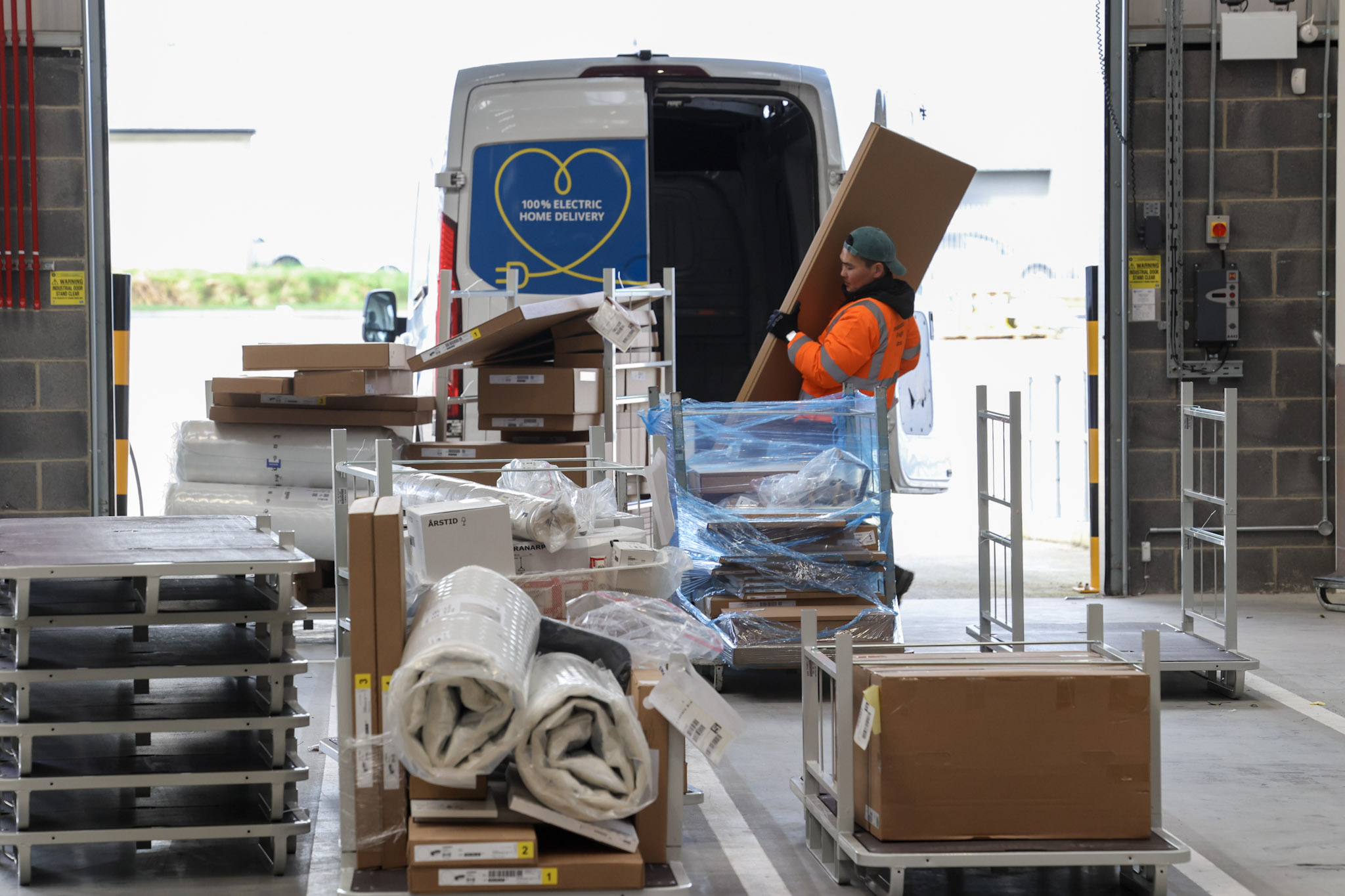In today’s preview of our annual conference, Internet Retailing 2012, to be held in London on October 9, we have our latest in a series of interviews with speakers at the conference. Keynote speaker Alison Lancaster , chief marketing officer of Kiddicare.com and marketing director at Morrisons.com , gives us insights into how retailers can bring together digital and stores to best effect.
Internet Retailing: The Internet Retailing conference this year is themed around the ‘mantle of leadership’ and the idea that retailers from ecommerce need to take a lead in taking the industry out of recession: how do you see retail developing in the future, including the balance between digital and store retailing?
Alison Lancaster, chief marketing officer at Kiddicare and marketing director at Morrisons.com: Ecommerce leaders have the opportunity to really influence the main business in terms of applying their digital marketing and digital tech expertise to the whole organisation.
For me, it’s about influencing the majority of the business. Even in the biggest organisations, the web part of the business is usually only around 20% of total sales. So online marketing activity has the opportunity to influence 80% of the business. When you think about it in today’s economic climate, a one or two per cent improvement on a multi-million or multi-billion business can have a huge effect.
The size of the prize is enormous in terms of being able to use digital marketing and digital tech to influence the whole organisation. Big data is often in the domain of the ecommerce or direct department. The trick is to capture as much data as possible that’s relevant in the core business, look at it in the way that direct businesses in ecommerce do and apply that to the whole business – customer information and understanding is a very powerful tool.
IR: You’re currently working on both Morrisons.com, which I understand is set to launch around the end of this year, and on Kiddicare.com. It seems an interesting mix since Morrisons is going online for the first time, while Kiddicare is opening stores for the first time. What do you believe that Morrisons and Kiddicare have to learn from each other, both about running stores and running websites?
AL: Morrisons was 100% bricks and mortar and Kiddicare was 85% internet; the strategy for both businesses is to address the balance. Because Morrisons went into the online space later, they looked to acquire an agile dot com to accelerate the learning and expertise. From a personal perspective, it’s not dissimilar to my time at John Lewis, over a decade ago now. At that time JL acquired buy.com to accelerate the transition into the ecommerce space. Since then, the department store has come full circle, and 12 years on and their online proposition is now fully integrated into the main business. I think both Morrisons and Kiddicare can learn a lot from each other.
One advantage of the Kiddicare acquisition is additional resource and expertise found in each business and teams don’t get distracted from core business. You suddenly have expert ecommerce resources on hand within the wider organisation.
If you take a category like baby, in which Kiddicare is the baby specialist, online customers still want to touch and feel products and talk to experts. These days it’s no longer acceptable to focus on a silo channel, about the demand is for a multichannel experience. Our customers told us that although it is very convenient to buy things from Kiddicare because it’s always unbelievable value with fantastic next day service within an hour, unless they lived around the Peterborough flagship area, they had to visit a competitor to touch and feel the products first. Our store roll out plans will meet the customer need giving 31% of the UK population easy access to the brand in physical stores as well as online.
IR: Do you think bricks and mortar and digital retailers have a lot to learn from each other?
AL: Absolutely. That’s all part of the role of leadership that we’re looking at throughout the conference, and the ability to influence across channels. It’s about learning both ways. There will be people who have worked in ecommerce and don’t have retail experience. And visa a versa. There are many direct businesses that fear retail and don’t want to do it. But I think in most categories, customers prefer to have all channels open at all times to them, so they can make their choice. As a contemporary retailer you need to have the convenience of physical spaces as well as a great virtual space, and then be accessible via mobile devices plus whatever other channels are relevant to your sector.
IR: How can online retailers use the high street to their advantage?
AL: We’ve seen already that the likes of Amazon and eBay are forming partnerships on the high street for services such as click and collect. It will be interesting to see what happens to some of the fashion pure-play brands. If they’re selling brands that you can try on in a shop or you know your size for that brand, you can happily buy with confidence from a pure play; those businesses don’t necessarily need to have a high street presence.
However, the danger is if they get great service when they go to try before they buy in another store. In this case, customers may ask ‘why wouldn’t I buy it there and then?’, particularly if there’s a price match policy available. When you look at the holistic piece which aims to serve your customer with a seamless brand experience, you need to join up all those touch points. I think there’ll be a point when pure plays have to form partnerships with retailers. That might be a way forward in the future for certain brands, and new retail partnerships will emerge. I think they will either acquire or partner with complementary businesses to create a complete offering, as opposed to cutting themselves off in one particular channel or silo.
IR: Are there lessons that the high street can learn from pure plays?
AL: Ecommerce retailers have really begun to master big data and understand how different insights can be used to make a difference to their business. Web analytics and single view of the customer are really powerful. If you can apply that in-depth big data knowledge and single customer view across the channels, just a small percentage improvement, would make a phenomenal difference in a pretty stagnant retail market. Not to mention all the customer experience and customer insights benefits that comes with that activity too.
From a retail perspective some stores are just brilliant at customer service and retail theatre – the key is how you bring the retail experience alive. Thinking about how that can translate to the web experience to get and keep people engaged and entertained so they remain brand loyal in the future is very important.
IR: What is the single most important issue that you think the retailers and other ecommerce professionals who’ll be listening to you at IR 2012 will need to be giving their attention to in the coming year or two – and why?
AL: The key focus for me is who owns and sets the digital strategy for your business? It’s important those leaders understand how to use digital marketing, digital tech, digital transformation to serve customers better and deliver really wow service and great joined-up customer experiences. If you think about it from a customer perspective, they might be watching TV as they browse social or online platforms via their iPad or laptop. Through clever digital strategy, businesses can join up that customer journey so that they end up in your store – on or offline. You can use their personal and journey data to really keep your business at the forefront of your category or industry. That insight is free research which enables much more efficient business processes and customer conversations.
IR: Who should own that strategy?
AL: Ideally it should be people who can really help sell the vision into the organisation and help coach and influence the wider team, as well as customers. You can’t underestimate the change management required. I think that’s where a lot of ecommerce people have a great opportunity. But this is still a void on a lot of retail boards. Other brands that have been trading for a while now, such as M&S, John Lewis, House of Fraser, will have really senior ecommerce strategists on their main board and you can see the benefits they’re reaping.
There’s a great opportunity for ecommerce leaders to take on bigger, more corporate roles in the business and to influence ecommerce for the next decade. It’s not about internet retailing or traditional retailing – it’s ‘total retailing’. Essentially, it’s just shopping. The extras are how you serve your customers better across every channel at every touch point and how you communicate more effectively with more relevant and timely offers that are appropriate to them. I really do believe it’s the digital agenda.
Alison Lancaster is one of the keynote speakers at this year’s Internet Retailing 2012, to be held on October 9 at the Novotel in Hammersmith, London. She will be speaking at 9.40am.









